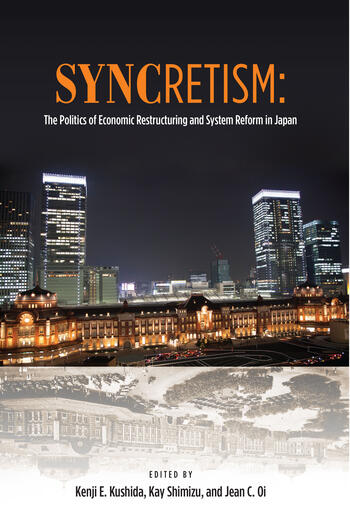Syncretism
 SYNCRETISM front cover
SYNCRETISM front cover
Japan’s first decade of the twenty-first century was both disappointing and bewildering, producing wildly contrasting evaluations. Many have come to call this period the “second lost decade,” characterized by policy paralysis and overall lackluster economic growth.
For those studying Japan more closely, however, the same decades reveal nothing short of a broad transformation in numerous core tenets of Japan’s postwar political economy. How can we best capture this transformation?
Each chapter in this volume examines a different aspect of Japan’s political economy within a longer historical trajectory, from multiple angles, to depict a flexible but resilient system. We characterize Japan’s process of change as syncretism—practices foreign, domestic, old and new were selectively adopted, mixed and matched, along the way creating a new and unique hybrid system.
Examination copies: Desk, examination, or review copies can be requested through Stanford University Press.
The Politics of Economic Restructuring and System Reform in Japan








